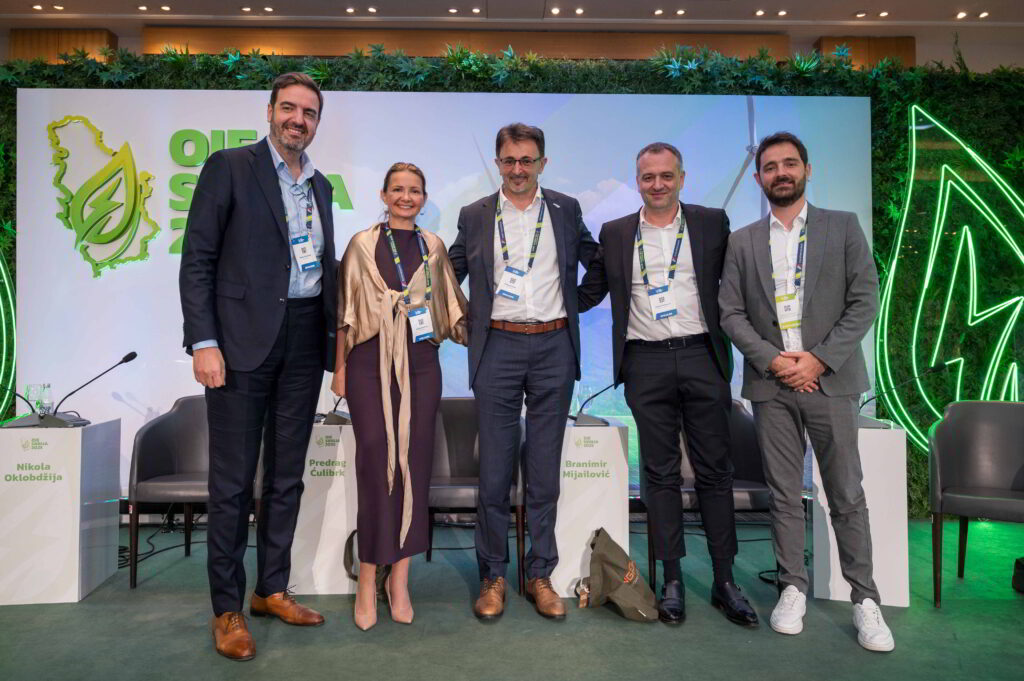What challenges do the countries of the Western Balkans face in the implementation of RES projects, what affects the speed of construction of wind parks, will Serbia receive a third auction for market premiums for renewable energy sources – these are some of the questions discussed by the participants of the panel dedicated to the implementation of RES projects, held at the RES SERBIA 2025 conference.
Participants in the panel “Implementation of RES projects – from Permits to Construction” discussed the differences in project development in Serbia and other markets, changes in the energy sector in the last 15 years, as well as the importance of project insurance.
Among the participants were Predrag Ćulibrk, Director of Elnos Serbia, Nikola Oklobdžija, Director for Eastern Europe of Fortis Energy, Branimir Mijailović, Director and Executive Board Member of W.D. Concord West and Stefan Jevremović, Director of Special Solutions Sector at the ACB.
The discussion was moderated by Danijela Isailović, Manager of the Association RES Serbia.
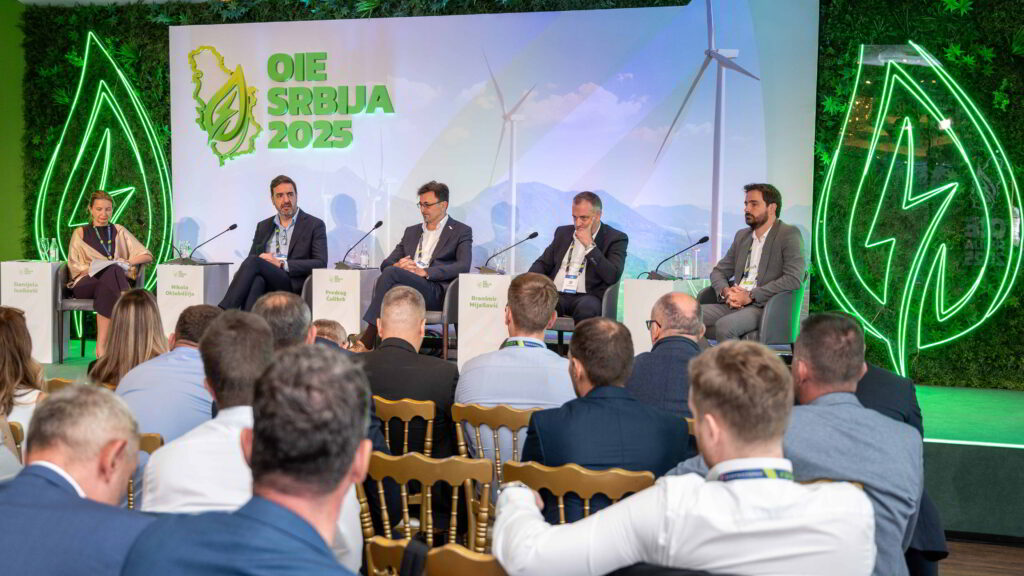
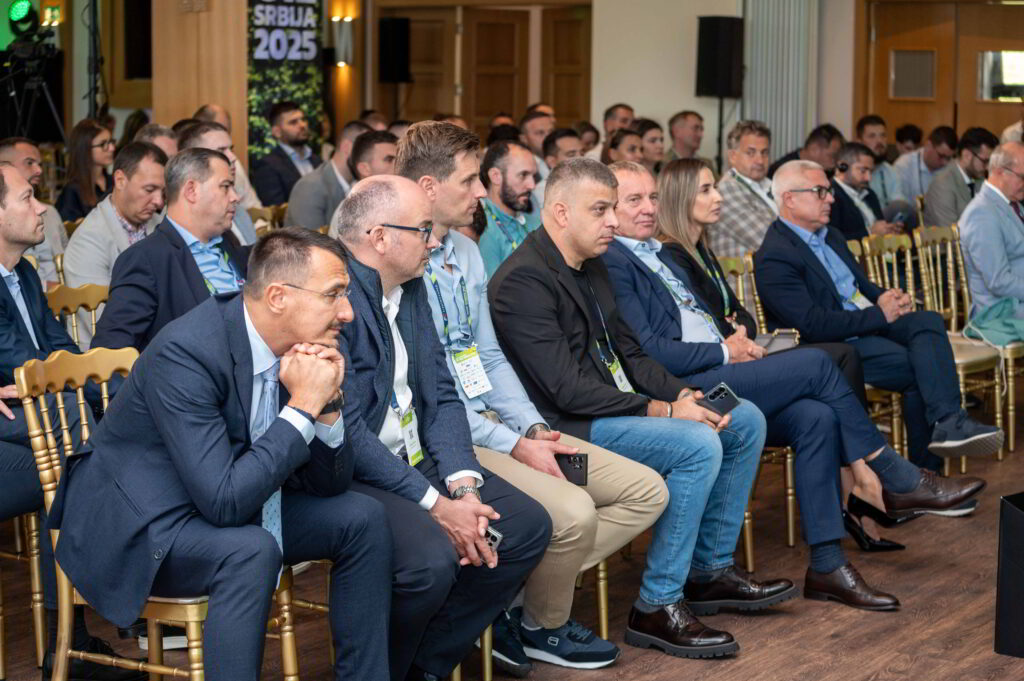
Serbia and Albania went the farthest in defining the legal framework
Nikola Oklobdžija, Director for Eastern Europe of Fortis Energy, pointed out that this company has more than 1.6 GW of projects under development in the Western Balkans region. According to him, the most important projects in Serbia are the Noćaj 1 and Noćaj 2 solar power plants of 180 MW, as well as 3 wind projects, Vranje, Gornjak and Juhor, with associated battery capacities.
– We expect the Vranje wind park to be the first project in the “ready to built” phase. As for the solar power plant Noćaj 1 and 2, it will be a project without state incentives. Until now, it was the practice in Serbia that larger projects were built with the help of auctions. But we hear more and more often that auctions have been put on hold, we do not hope for that in Serbia. We are pleased to have received feedback from the banks, we see international institutions as partners – Oklobdžija pointed out.
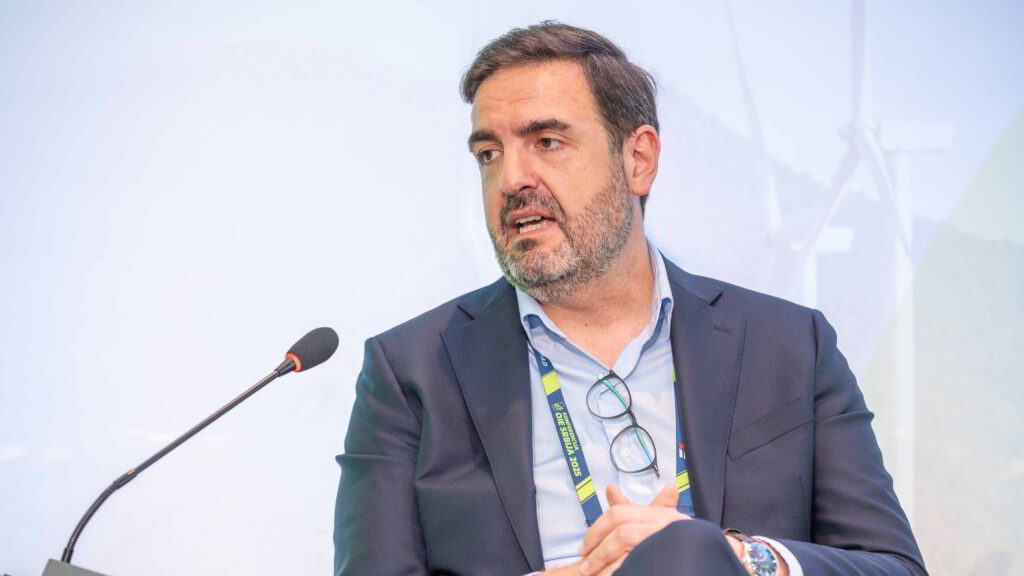
Nikola Oklobdžija, Director for Eastern Europe of Fortis Energy
According to him, all the countries of the Western Balkans face more or less the same challenges when it comes to the development of RES projects.
– Serbia and Albania went the furthest in defining the legal framework, there were two successful auctions. North Macedonia only established the Ministry of Energy last year. In Bosnia and Herzegovina, we have a project under development, on the inter-entity border, so there are challenges there because the rules of the game are not uniform on one side and the other – reveals Oklobdžija.
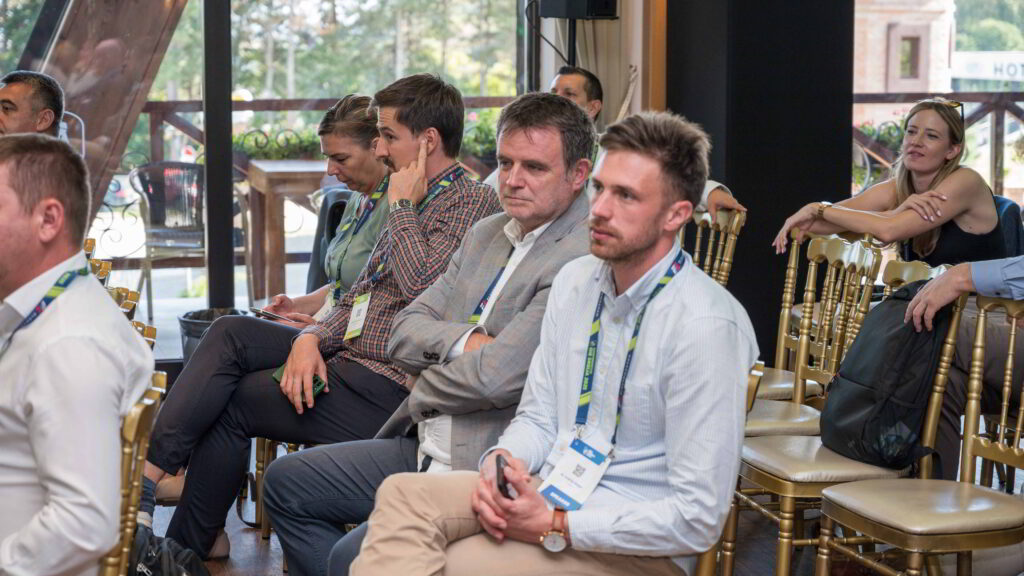
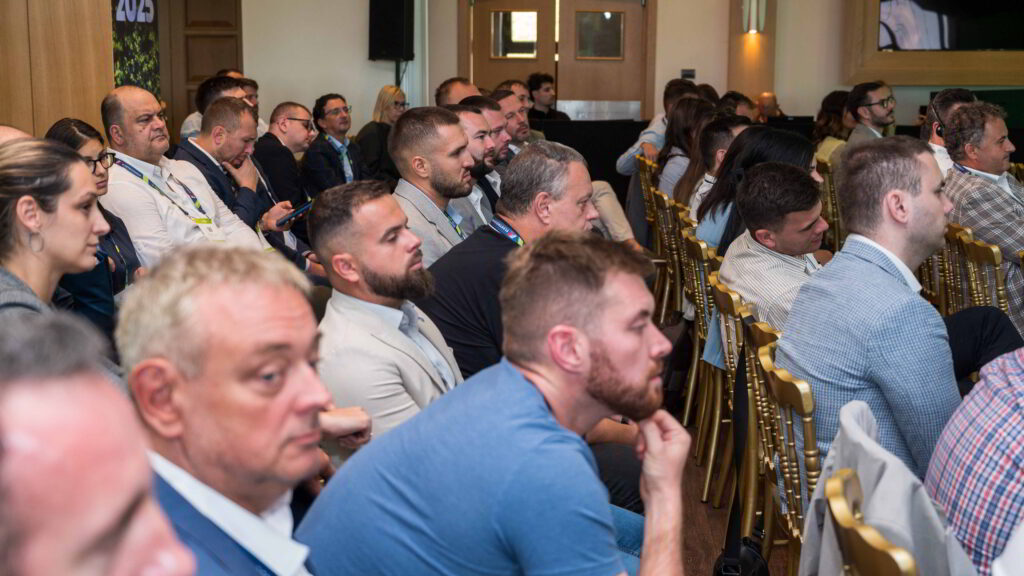
How to complete a wind park in record time
Branimir Mijailović, Director and Executive Board Member of W.D. Concord West pointed out that among the biggest challenges in the implementation of RES projects is the fact that until two years ago it was unthinkable for Serbian companies to get the opportunity to be IPS contractors.
As he says, the intermediary was always a foreign company, while Serbian companies were the contractors. Upon stating that the Pupin wind park was completed in record time, Mijailović reveals that in 2023, Concord West and Elektrozapad received a request for an offer from Enlight.
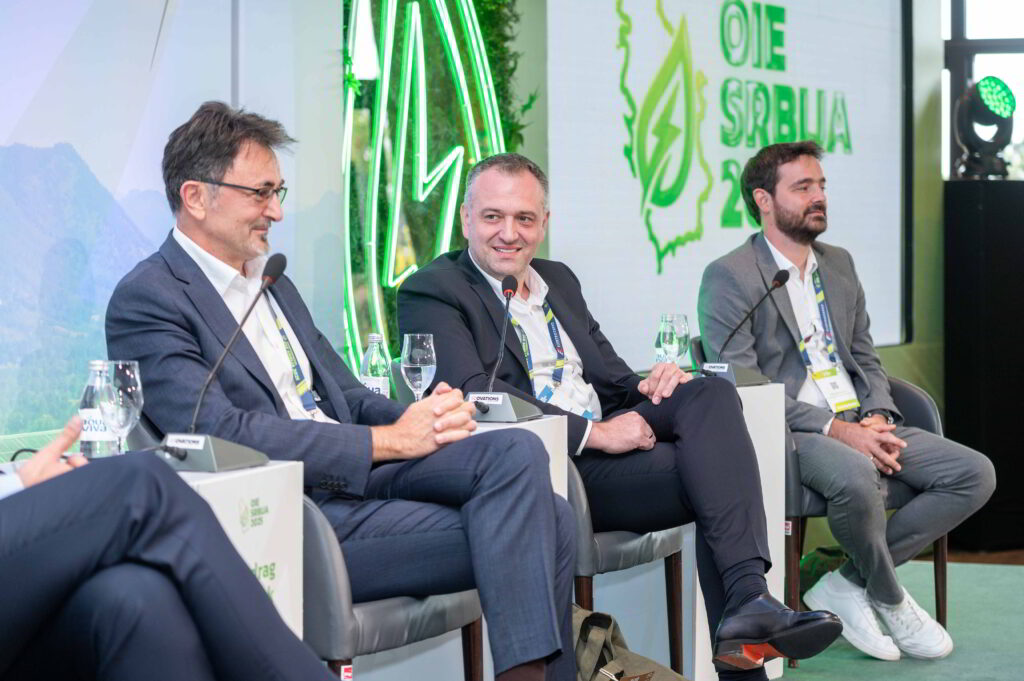
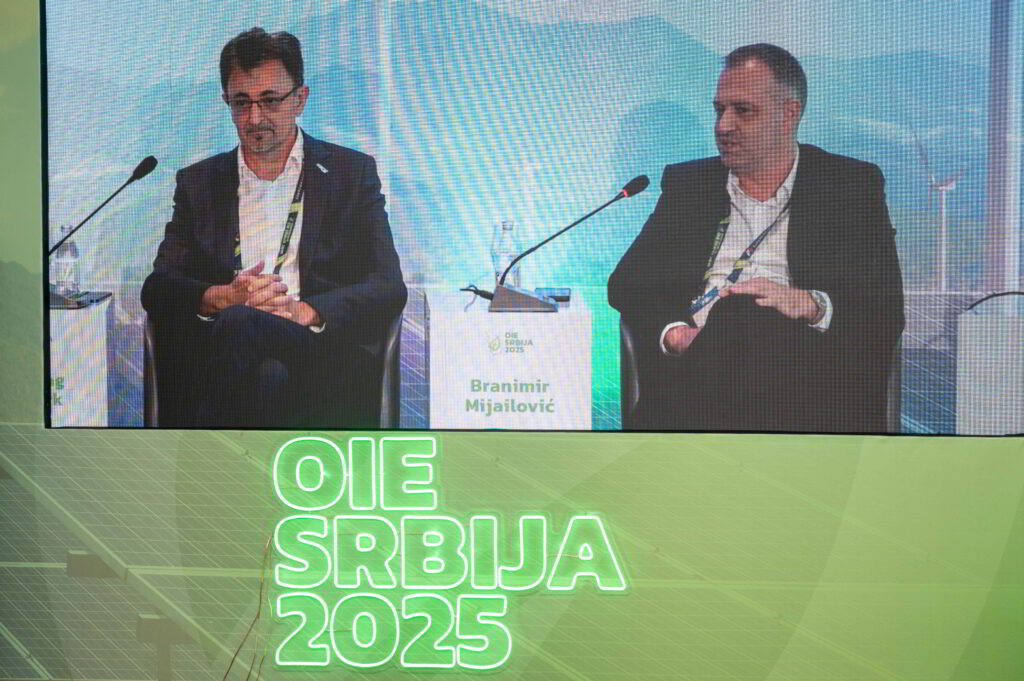
– In 10 months, we finished the project, put it into trial operation. That helped us get the next job, in a consortium with Elnos Group and Elektrozapad. It is the Čibuk 2 wind park, with 22 wind generators and a capacity of 155 MW. We started working last November, and after 10 months we have, as far as our part is concerned, 90% of the work completed – Mijailović pointed out, adding that the company also plans to expand to renewable energy projects in the region.
According to him, the electricity sector has changed a lot in the last 15 years, from the dominant heating with electricity because it was cheap, to the fact that, due to the change in climate and habits, we have come to the point where there are no more “peaks” in consumption, because it is the same in winter and summer.
– In recent history, we have the development of electric cars that require large capacities of electricity and finally the development of artificial intelligence, which is a huge consumer of electricity – Mijailović pointed out.
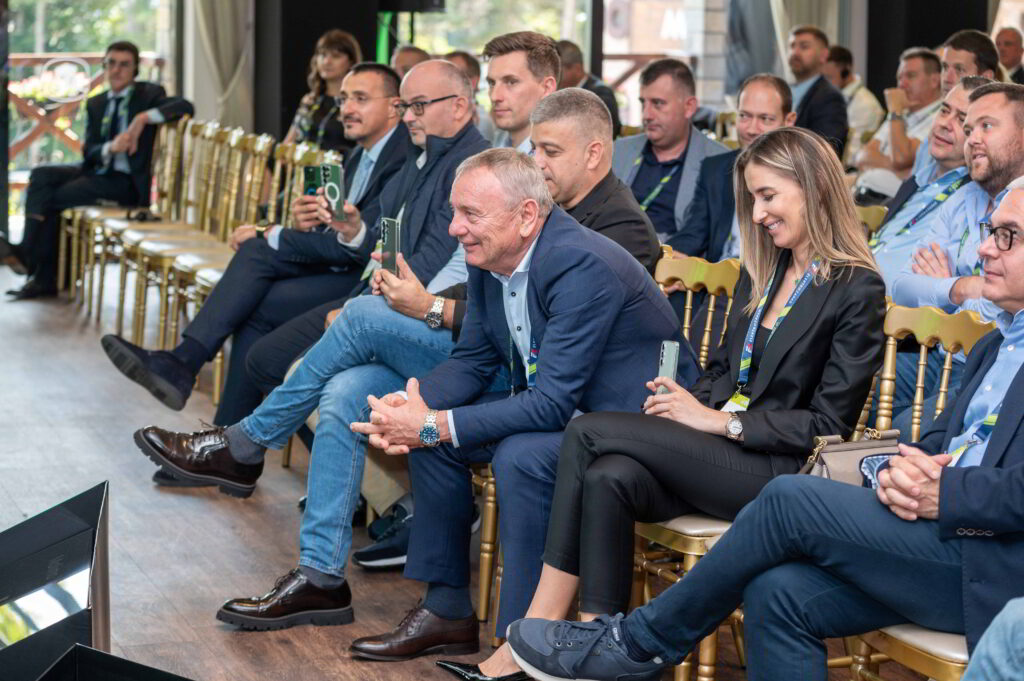
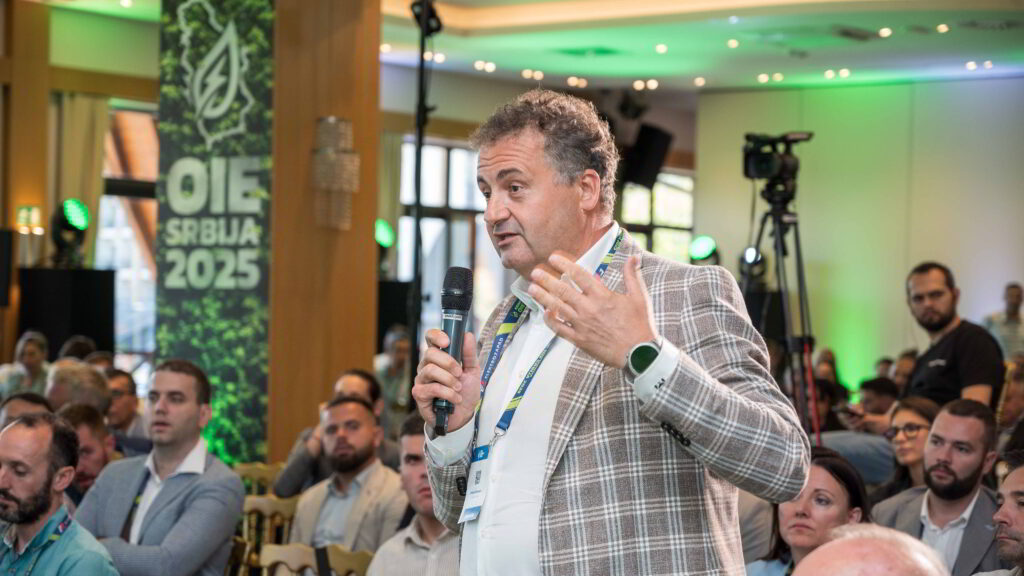
Differences between Serbian and other European markets
Predrag Ćulibrk, Director of Elnos Serbia, said that this company is committed to the decarbonization process, which he confirms with more than 2 GW of green projects built. The strategy of Elnos, as he says, is market dispersion.
– Elnos works in 18 markets, from Iceland to North Macedonia. One of the biggest challenges is adequate planning of resources, because the development of projects takes a very long time, two or three years – Ćulibrk said.
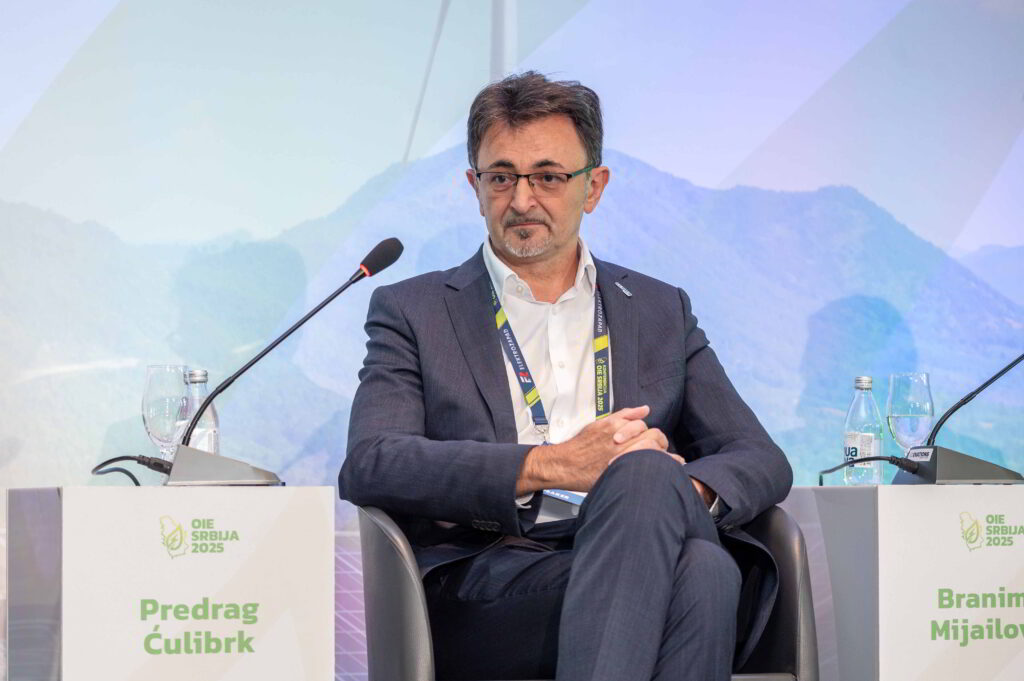
Predrag Ćulibrk, Director of Elnos Serbia
According to him, the position of engineering companies is not great, because they are often in a gap between the demands of investors, suppliers, and administration, while their focus must always be on respecting quality and customer demands.
– My impression is that contractor and engineering firms in the West are treated as partners a little more than here. There are also delays in starting projects, but the impression is that they have a little more understanding. It has come into practice here that the contractor should also push for a use permit for the entire project, which does not exist in the west – pointed out Ćulibrk.
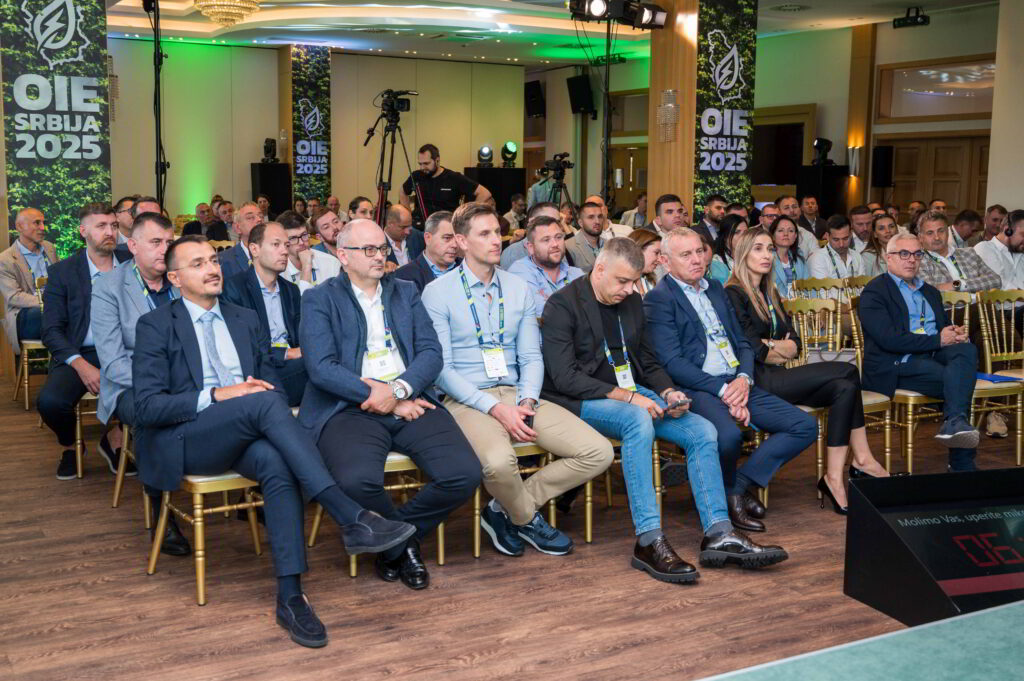
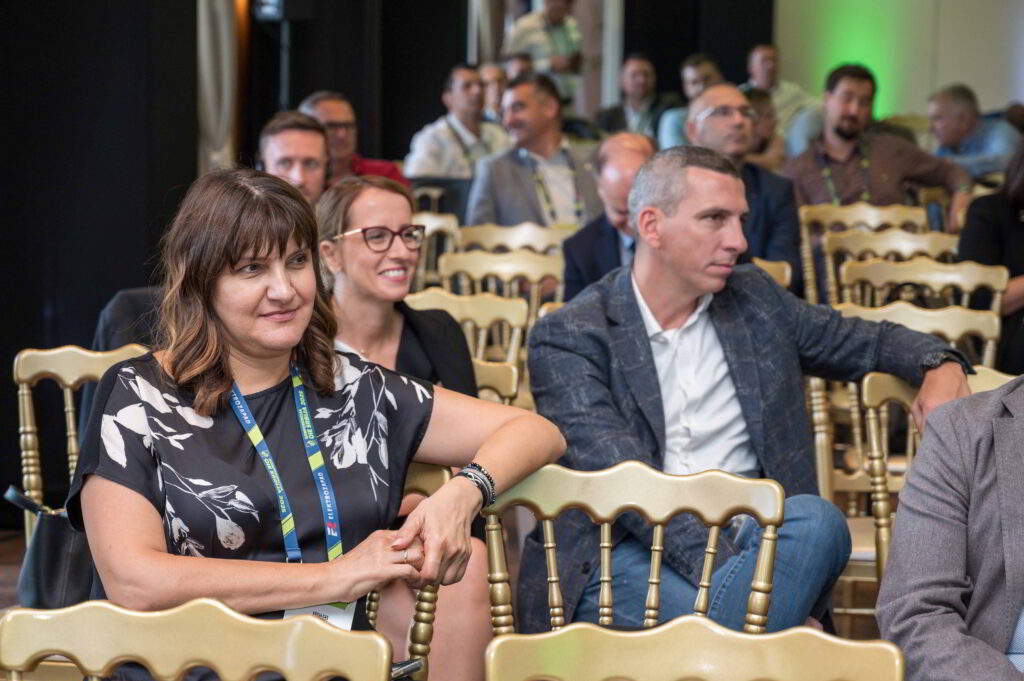
He said that the company learned many lessons from the Krivača wind park.
– We will pass all the exams there. We are nearing the end of Krivača, I hope, we have great cooperation on Čibuk 2, we are also working on the realization of the Gvozd wind park in Montenegro. Projects in Europe are mostly related to decarbonization – emphasized Ćulibrk.
Insurance is an important factor in RES projects
Stefan Jevremović, Director of Special Solutions Sector at the ACB, said that insurance is an important factor in projects because banks see it as a means of security.
– Unforeseen events happen and insurance policies are there to keep the project running even when an incident occurs. ACB has secured almost 700 MW in wind and solar, we hope to reach 1 GW of wind alone by the next conference – Jevremović pointed out.
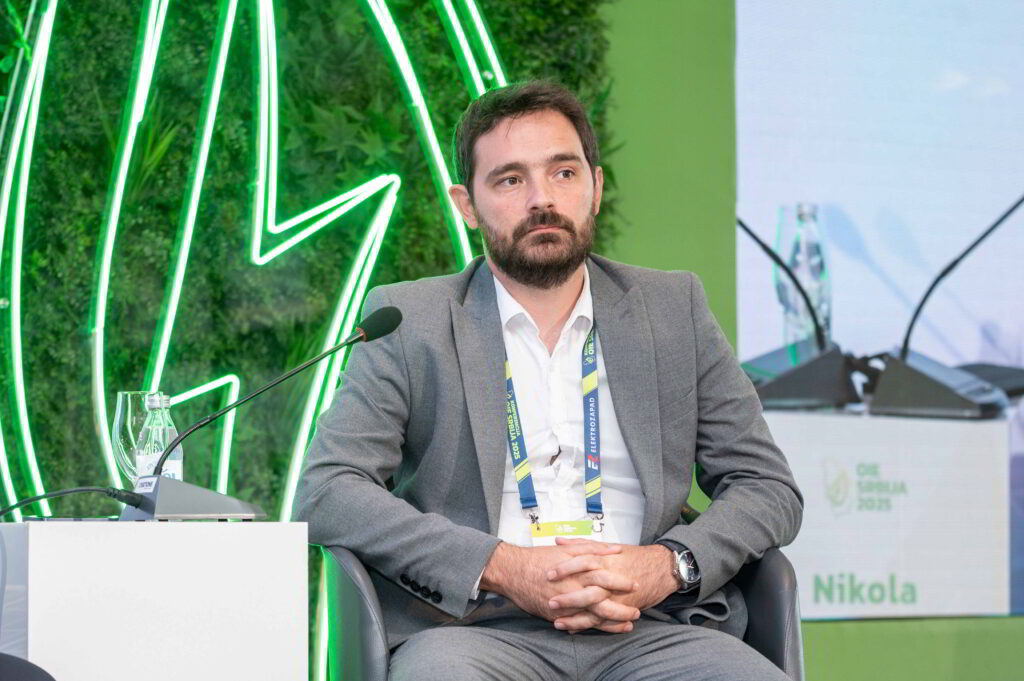
He said that changing conditions, such as major summer storms, also affect the development of different strategies and scenarios for clients.
– We have a package where the policy covers the construction period and the first year of operation, but it is important that the contractor has equipment insurance. The policies of large projects, wind parks of 100 MW cost a lot, it is also important which turbines are on the project – concluded Jevremović.
RES SERBIA 2025 conference gathered decision-makers, representatives of companies, investors, banks, and the academic community during two days in Vrdnik. The conference was organized for the fifth year in a row by the Association Renewable Energy Sources of Serbia.


